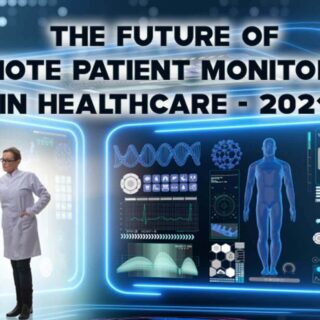
With the advent of big data and information technology, the importance of data collection, analysis and exchange across industries is rapidly increasing. The same is noticeable in the healthcare industry which is lending great preference to advanced, real-time patient data to help doctors and specialists make information-backed treatment decisions. Medical care delivery systems are leveraging high-end healthcare IT programs to collect, manage, store and analyze patient data, enabling care providers to deliver tailored healthcare services to each patient and enhance outcomes. Data interoperability is an essential aspect of healthcare delivery as seamless exchange and interchange of data between the various stakeholders involved in patient treatment, from their doctors and care team to their families, allows for better care coordination. Furthermore, patients must have ready access to their electronic health record (EHR) to facilitate convenient and fast second opinion seeking and prevent medical material waste. The 21st Century Cures Act has been pivotal in regulating data interoperability and preventing data blocking in the healthcare industry. In this article, we will discuss in detail about the 21st Century Cures Act and how it impacts the healthcare ecosystem.
The 21st Century Cures Act is a bipartisan legislation introduced in December 2016 during the tenure of President Barack Obama. It aims to increase healthcare access for patients and ease up the cumbersome administrative processes for healthcare organizations. It also describes conditions to optimize the development and distribution of drugs and medical devices, promote research into finding cures for rare diseases, fight the opioid epidemic and boost mental health-related services. The most extensively discussed provisions in this act are about moderating the regulatory burden of using EHR systems and health information technology and fostering data interoperability and preventing data blocking practices. The 21st Century Cures Act has painstakingly described the practices that can be considered as data blocking by thwarting or hindering the access, exchange or use of electronic health records.
Once the 21st Century Cures Act was passed by law, it reached the offices of the National Coordinator for Health Information Technology (ONC) and Centers for Medicare and Medicaid Services (CMS) for review. The ONC and CMS then defined two highly detailed sets of guidelines based on the interoperability and information blocking provisions of the 21st Century Cures Act. These rules were approved and finalized by the US Department of Health and Human Services (HHS). The ONC final rule is a 1200 plus pages document and discusses at length the regulations of information blocking, preventing healthcare providers, health IT developers, health information exchanges (HIEs) and health information networks from engaging in practices that constitute information blocking. Information blocking pertains to a variety of groups including providers, payers and IT developers. If a patient requests for their data or wants their data to flow at a particular place, providers must oblige without inhibiting the fulfillment of their request in any way.
According to ONC, information blocking is a practice by a health IT developer of a certified IT, health information network, HIE or healthcare provider that prevents or interferes with the access, exchange or use of electronic health records. Section 4004 of the 21st Century Cures Act describes practices that could be considered as information blocking-
The ONC final rule describes numerous such practices that come under the category of information blocking.
The ONC has also described certain conditions in which a practice won’t be considered information blocking to offer leeway to healthcare providers and IT developers, where necessary and justified. If the law requires or the HHS secretary specifies a practice to be reasonable and necessary, it won’t constitute information blocking. A total of eight exceptions are discussed in the ONC final rule and are divided into two categories-
The first category entails the following exceptions-
The second category contains the following exceptions –
Health Record Banking Alliance (HRBA) is a non-profit membership organization that aims to establish a health record bank that stores the most accurate, up-to-date, and comprehensive patient medical records that patients and providers can access as per the patient’s will. HRBA’s primary objective is to enable each patient to have their own lifetime, comprehensive, unified health record which they can use and let use as and when they feel necessary.
Health Wealth Safe is a leading healthcare solutions provider helping practices comply with the 21st Century Cures Act and the ONC final rule. HWS has recently introduced its health records bank that enables patients to take control of their health records and seamlessly access, share and analyze their lifetime health data from a single location. No need to fret that your data may get lost or compromised if you use HWS’ medical records bank. Enquire about our healthcare solutions as well as our medical records bank today.
Become a Partner
Support
Portals